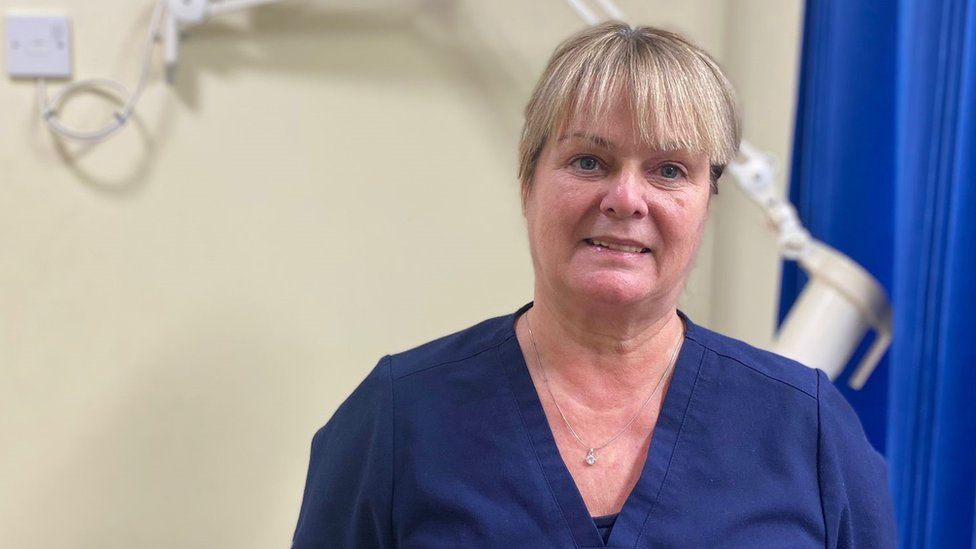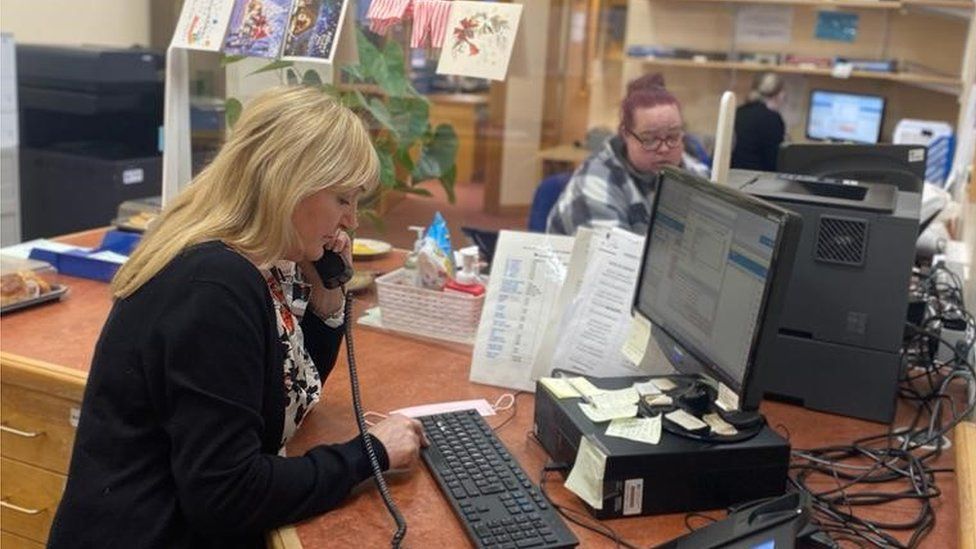
GPs in Northern Ireland are an endangered species, a senior doctor has said.
Dr Frances O’Hagan, a partner GP at the Friary Surgery in County Armagh, said most surgeries did not have enough GPs or reception staff to meet demand.
The number of GP practices in Northern Ireland has fallen by about 9% and nine surgeries have recently handed back their contracts.
However the number of individual GPs has increased.
Dr O’Hagan said GP practices were on their knees.
Speaking to the BBC’s Good Morning Ulster programme, Dr O’Hagan said low staffing was the main reason people would struggle to get an appointment.
“All we want to do is give good care to our patients, but the problem is we have no GPs and no reception staff,” she said.
“GPs are an endangered species. There are not enough of us, they are not training enough of us and they’re not facilitating keeping more of us in practice.”
‘Nobody left’
Dr O’Hagan said she worked more than 50 hours a week, despite officially only working for three days part-time.
The remaining two days are spent on administration and following up with patient’s conditions.
She said a GP’s workload would make it impossible to see patients face-to-face on a full-time basis.
“We have to be very careful,” she said.
“If we don’t make general practice an attractive place to work, if we don’t bring young GPs in and we don’t stop GPs like myself retiring, we’re going to have nobody left.”
- Fewer GP practices operating in Northern Ireland
- GP surgery closures to have ‘devastating effect’
The Friary GP Surgery has 9,000 patients on its books who live within a six mile radius and is one of three GP surgeries on the same site.

Patients can call to arrange an appointment on weekdays between 08:30 and 09:00 GMT.
Reception staff Mary McIlroy and Rosie Prunty told the BBC the surgery usually received up to 130 calls during this period.
“You can feel your stomach churning a wee bit just before the phones start,” Ms McIlroy said.
“It’s stressful. You feel under pressure because the phones ring all the time and you’re trying to get people sorted as best you can.”
Ms Prunty said patients could become frustrated when appointments filled up.
“Most of the time they’re good, but there’s the occasional time that people don’t react well whenever they’re told the appointments are all gone for the day,” she said.
At the end of March 2022 there were 319 GP surgeries in Northern Ireland, down from 350 in 2014.
The number of registered patients per practice rose by about 15% – from 5,500 to 6,340 – in the same period.
Despite the decrease in practices, the number of GPs, excluding locums, went up by 20% to 1,419 since 2014.
‘Demand is phenomenal’
The chairman of the British Medical Association’s Northern Ireland GP committee Dr Alan Stout said GPs’ workload had increased dramatically over recent years.
“We’re trying to deliver a better service for our patients and we are more frustrated than anybody else whenever we can’t deliver that.
“The problem that we have at the moment is no matter what way you do it, whether its an appointment system, whether its phone-first, we just don’t have the capacity to meet the demand – the demand is just phenomenal.”
Dr Stout said he believed GPs could deliver a much better level of primary care but practices needed to be realistic over the service they could provide.
“We need the whole system to change and to pivot to out-hospital care, keeping people at home and having the staff and the resource within primary and community care to achieve that,” he sad.
-
Fewer GP practices operating in Northern Ireland
-
28 June

-
-
GP surgery closures to have ‘devastating effect’
-
25 November

-